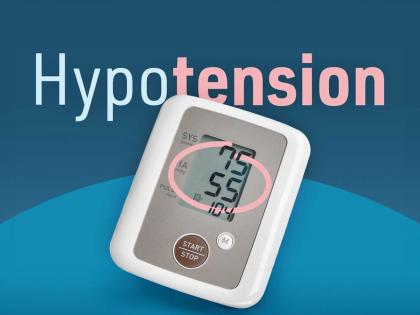What is Hypotension: Know Causes, Symptoms, and Why It's a Serious Health Concern
By Lokmat English Desk | Updated: October 7, 2024 18:08 IST2024-10-07T14:34:45+5:302024-10-07T18:08:26+5:30
Understanding what hypotension is, and recognizing its signs and symptoms, is crucial for timely intervention and management.

What is Hypotension: Know Causes, Symptoms, and Why It's a Serious Health Concern
A normal blood pressure for most adults is a systolic pressure of less than 120 mm Hg and a diastolic pressure of less than 80 mm Hg. If blood pressure drops significantly below this range, it can become a major concern, potentially leading to hypotension or low blood pressure. Hypotension occurs when the force of blood against the artery walls is too low, which means that the heart, brain, and other parts of the body may not be receiving enough blood flow. This can result in a variety of symptoms and may be a sign of an underlying health issue. Understanding what hypotension is, and recognizing its signs and symptoms, is crucial for timely intervention and management.
Hypotension, or low blood pressure, is a medical condition characterized by a drop in blood pressure below the normal range. Hypotension can lead to various symptoms, including:
- Dizziness or lightheadedness
- Fainting
- Fatigue
- Nausea
- Blurred vision
Several factors can cause hypotension, including:
- Dehydration: Insufficient fluid intake can lead to low blood volume and decreased blood pressure.
- Heart Problems: Conditions affecting heart function can impair blood flow and lower blood pressure.
- Endocrine Issues: Hormonal imbalances, such as those related to the adrenal glands, can affect blood pressure regulation.
- Severe Infection (Septic Shock): Infections can lead to widespread inflammation and a significant drop in blood pressure.
- Blood Loss: Severe bleeding from injuries or internal bleeding reduces blood volume, leading to hypotension.
- Medications: Some medications, especially those used to treat high blood pressure, can cause hypotension as a side effect.
- Nutritional Deficiencies: Lack of essential nutrients, particularly vitamins B12 and folate, can lead to anemia and low blood pressure.
It's important to note that low blood pressure can be a serious condition that requires medical evaluation and treatment.
Open in app